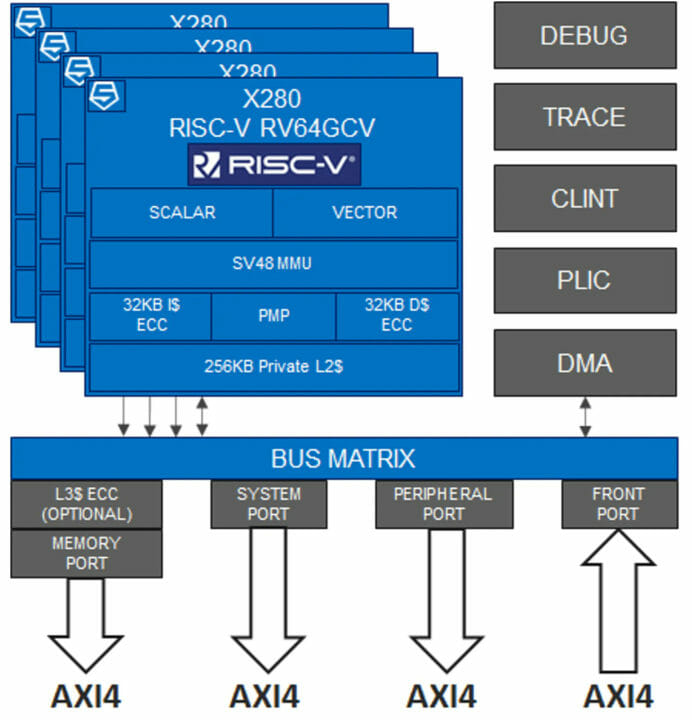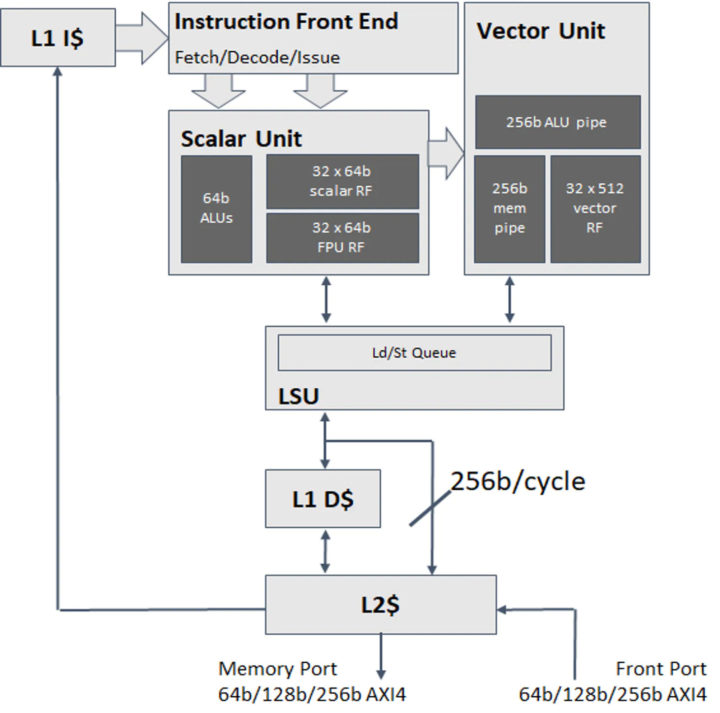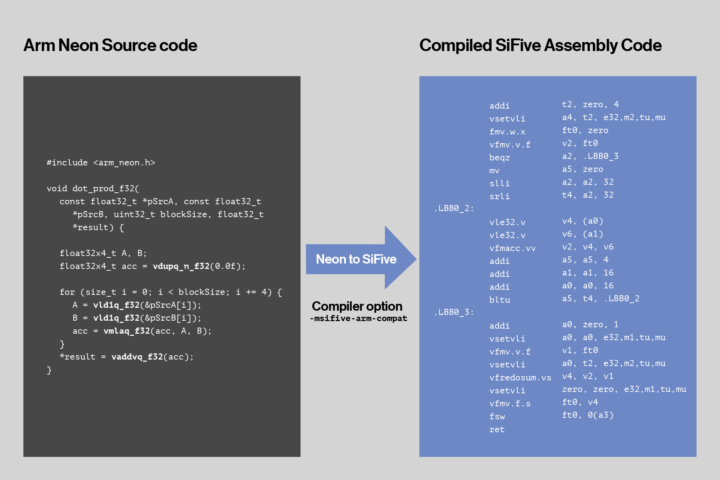The last RISC-V core announced by SiFive was the U8-Series out-of-order RISC-V Core IP that aims to compete against Arm Cortex-A72 Core. But in their latest announcement, the company built upon the 64-bit RISC-V U7-series with the SiFive Intelligence X280 multi-core, Linux capable RISC-V processor adding vector extensions and SiFive Intelligence Extensions, and optimized for AI/ML compute at the edge.
SiFive Intelligence X280 key features:
- 64-bit RISC-V ISA with 8-stage dual-issue in-order pipeline, coherent multi-core, Linux capable based on U7 series core.
- SiFive Intelligence Extensions for ML workloads – BF16/FP16/FP32/FP64, int8 to 64 fixed-point data types
- 512-bit vector register length – Variable-length operations, up to 512-bits of data per cycle
- High-performance vector memory subsystem
- Memory parallelism provides cache miss tolerance
- Virtual memory support with precise exceptions
- Up to 48-bit addressing
SiFive Intelligence includes software solutions to leverage the X280’s features and provide “great AI inference performance” using TensorFlow Lite. No AI benchmarks were provided for comparison, however, except that the AI instructions will be twelve times faster than inference on RISC-V cores without intelligence extensions.
What’s also interesting is that code optimized for Arm NEON instructions can be compiled to make use of Sifive Intelligence extensions using the “-msifive-arm-compat” flag. The company also highlights the flexibility of the solution saying the hardwired (CNN) “accelerators may work well for matrix multiplication and convolution but simply aren’t efficient or adaptable enough for more modern models, such as transformer-based models like BERT or recommendation models”.
SiFive further explains that in addition to ML inferencing, the new Intelligence X280 core is also suited for applications requiring high-throughput, single-thread performance while under power constraints citing AR/VR, sensor hubs, IVI systems, IP cameras, digital cameras, and gaming devices as examples.
The first customer integrating the RISC-V core into their design will be Tenstorrent, a company that provides AI training and inference processors. More details may be found on the product page and press release.

Jean-Luc started CNX Software in 2010 as a part-time endeavor, before quitting his job as a software engineering manager, and starting to write daily news, and reviews full time later in 2011.
Support CNX Software! Donate via cryptocurrencies, become a Patron on Patreon, or purchase goods on Amazon or Aliexpress







